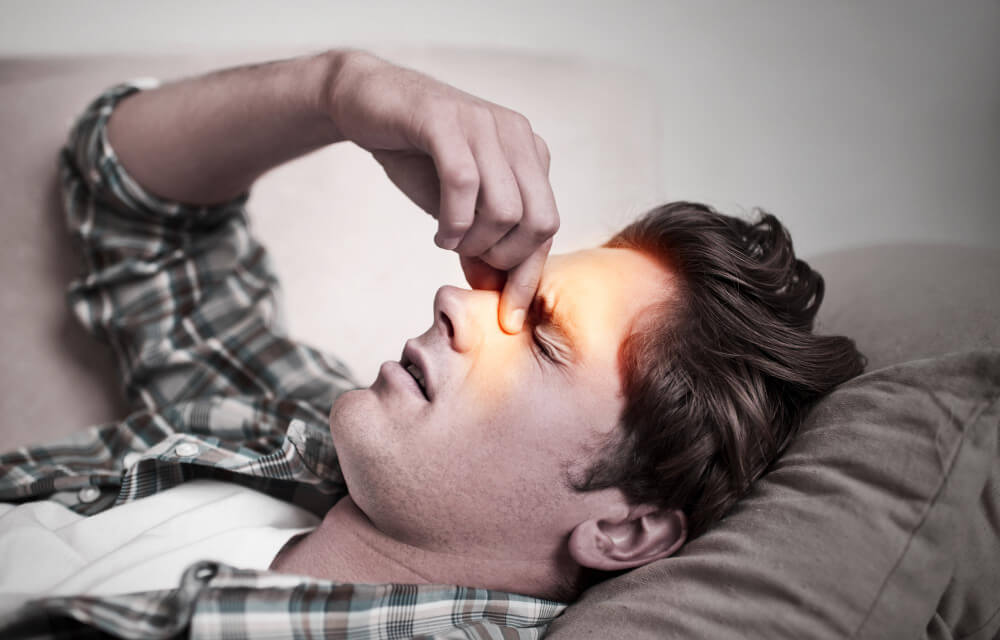You wake up congested, your face feels tight, and you’re trying to get through work or school while breathing through one side of your nose. If that sounds familiar, you may be dealing with sinusitis. In Kirkland, changing seasons, damp winters, and indoor heating can prolong symptoms. However, there are simple steps you can take today and clear signs for when it’s time to see a local specialist. In this blog, we will discuss tips and measures to help you breathe easier and get back to normal.
Quick check: sinusitis or a lingering cold?
Sinusitis means the lining of your sinus cavities is inflamed, which blocks drainage and builds pressure. A cold usually improves within seven days. If symptoms last more than ten days, or you have facial pressure, thick yellow or green discharge, decreased smell, dental or forehead pain, or pain when you bend forward, sinusitis is more likely. Acute sinusitis lasts up to four weeks. Chronic sinusitis means symptoms continue for twelve weeks or longer, often with ups and downs between flares. If you’re not sure, track your symptom days, fever pattern, and how your breathing changes.
Why does it flare in Kirkland?
Certain conditions in Kirkland can make sinus problems worse. Local triggers add up: spring pollen, rainy periods that raise indoor mold and dust, and late-summer wildfire smoke. Cold and flu season spreads viruses that start the process. Dry heated air, pet dander, and office HVAC add to the load. Track when symptoms worsen after mowing, during stormy weeks, or on poor air quality days to spot patterns and prevent repeat flares.
At-home relief that actually helps
If you’re dealing with sinusitis, it’s normal to want quick fixes that bring some relief before heading to a doctor. While not every remedy works for everyone, a few simple at-home measures can make symptoms more manageable and reduce flare-ups. The key is focusing on routines that support drainage, reduce inflammation, and keep your nasal passages clear.
- Saline rinses: Use sterile, distilled, or previously boiled and cooled water for rinses once or twice daily. This helps wash away allergens, mucus, and irritants. Always clean your device after each use.
- Steam and humidity: A warm shower or a humidifier can add moisture to the air and soothe your nose. Keep humidity moderate to avoid mold growth.
- Over-the-counter support: Pain relievers can ease facial pressure. Nasal steroid sprays reduce swelling, and antihistamines can help with allergy-driven sinus problems. Limit oral or topical decongestants to short periods to avoid rebound congestion.
- Lifestyle adjustments: Staying hydrated, getting adequate rest, and sleeping with your head slightly elevated all support easier breathing. Try to avoid cigarette smoke, heavy fragrances, or dusty environments when symptoms are active.
These measures won’t cure an infection if one is present, but they often reduce the severity of symptoms and may help you feel more comfortable while your body heals.
When to call an ENT in Kirkland
You should consider seeing a specialist if symptoms persist beyond ten days without improvement, recur frequently, or if you experience four or more infections per year. Call sooner for high fever, severe facial pain or swelling, vision changes, a very stiff neck, or symptoms after a dental infection. Congestion beyond twelve weeks or poor response to repeated antibiotics are strong reasons to be seen. An ENT can confirm the diagnosis and tailor a plan to your triggers and anatomy.
What Can You Expect During the Treatment?
Evaluation includes history and a nasal exam. Some ENTs use a slim camera for nasal endoscopy to view drainage pathways. A sinus CT is used for chronic or recurrent cases or before procedures. Treatment starts conservatively: daily saline rinses, intranasal steroids, and allergy control. If allergies drive symptoms, options include oral or nasal antihistamines and immunotherapy. Antibiotics are reserved for suspected bacterial infections with severe or prolonged symptoms. Office procedures can help selected patients: balloon sinuplasty widens narrow drainage pathways, and functional endoscopic sinus surgery removes polyps and opens blocked passages so medications work better.
Everyday Prevention for Kirkland Living
To maintain your health in Kirkland, build a simple routine: daily or near‑daily saline during high‑risk months, and use nasal steroid sprays as directed. Change HVAC filters regularly and consider a HEPA purifier for bedrooms. Shower and change clothes after yard work or outdoor runs on high‑pollen days. Wash bedding weekly and vacuum with HEPA filtration. Monitor pollen and air quality forecasts and plan outdoor time when levels are lower. Keep a small kit with saline packets, tissues, and a travel bottle.
Final Word
You don’t have to push through weeks of congestion and pressure, starting today. Start a consistent saline and nasal steroid routine, adjust your home environment, and track triggers. If you’re in Kirkland and the nearby regions, symptoms keep returning or drag on, book a quick appointment with a local ENT. A targeted plan can reduce flares, improve sleep, and help you rely less on medication.
Your Path to Sinus Relief Starts Here
If you’ve been struggling with recurring sinus infections or ongoing pressure that just won’t go away, it may be time to consult a specialist. At Sinusitis in Seattle, our experts can evaluate your symptoms, pinpoint the cause, and recommend the proper treatment, whether it’s medical therapy, allergy management, or a minimally invasive procedure. Schedule your consultation today and start breathing again.


